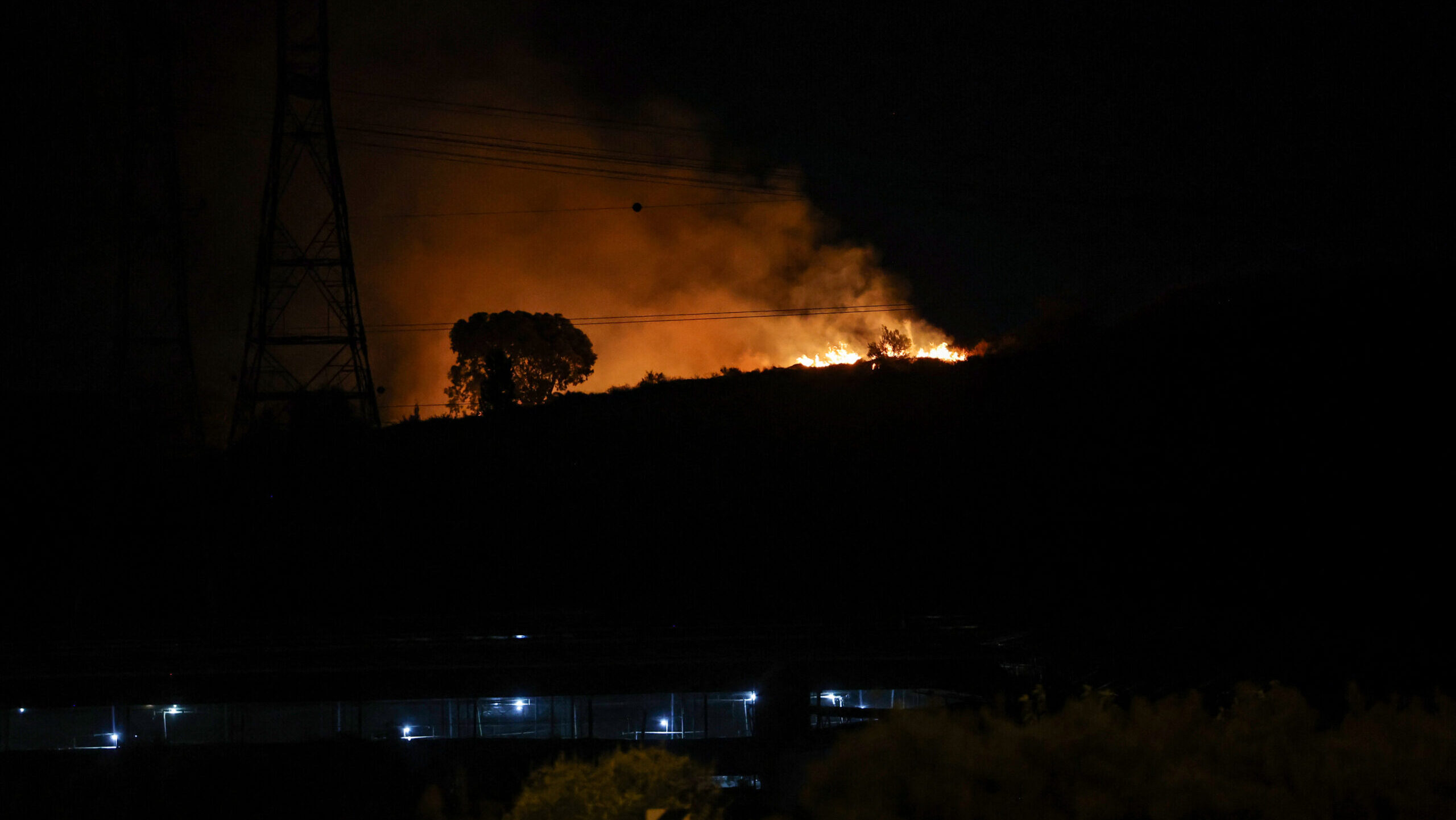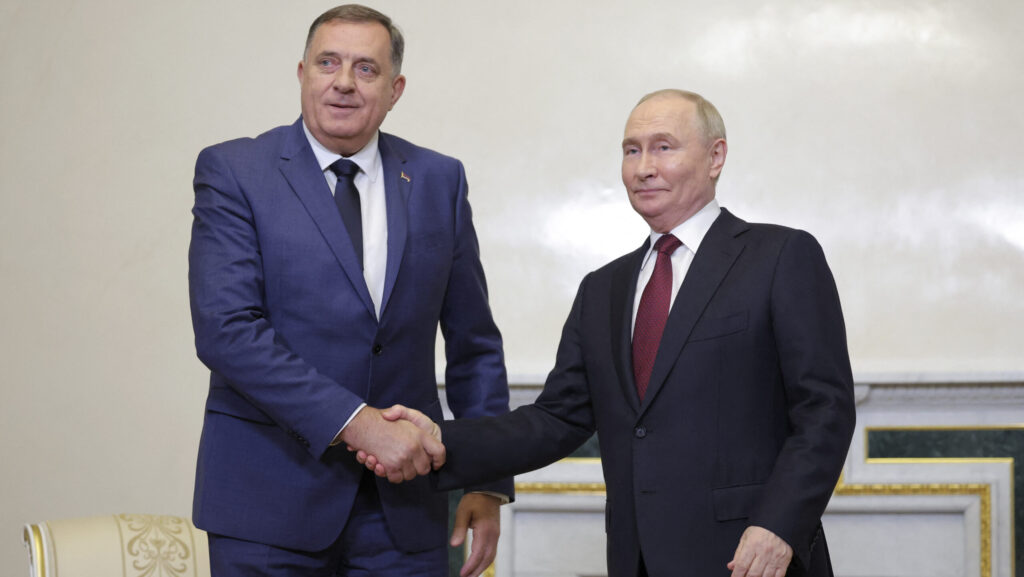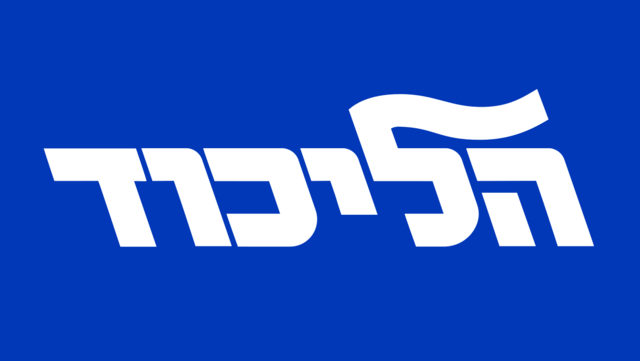Iran launched over a hundred missiles against Israel on Tuesday evening, escalating tensions and bringing the two arch-enemies closer to full-scale war. Tehran claims that the missile strike is in retaliation for the killing of Hezbollah leader Hassan Nasrallah and other Hamas leaders. The Iranian attack occurred just hours after Israel initiated a ground offensive in Lebanon aimed at dismantling Hezbollah’s military infrastructure along the border and one day before the holiday of the Israeli New Year, Rosh Hashanah. Just hours before the attack the 2nd International Pro-Israel Summit concluded in Budapest.
💥Breaking💥
— Prasanjeet Kumar (@Prasanjeet7522) October 1, 2024
Iranian missiles rain down on Israel . 🤬
You are witnessing the early days of World War 3 in Real Time.
We Stand with Israel when they are suffering from a horrible Terror attack .Stay strong, stay safe.🤝#Iran #IronDome #TelAviv pic.twitter.com/kQGuSdeGGH
Israel’s military reported an initial estimate indicating that Iran had fired 180 ‘projectiles’ at the country. Israel Defense Forces (IDF) spokesperson, Rear Admiral Daniel Hagari, confirmed that there were no injuries as a result of the attack, adding that this was not the first time Israel has faced a threat from Iran. ‘We are ready for them,’ he stated. ‘This was a serious attack on us, and there will be serious consequences,’ Hagari warned during a briefing, according to CNN.
Following the missile barrage, Iran’s Revolutionary Guard warned that it would launch ‘crushing attacks’ against Israel if the latter chose to retaliate. However, Israel vowed to respond, with its military spokesperson stating that retaliation would occur at a time and place of its choosing. ‘This attack will have consequences. We have plans, and we will act at the place and time we decide,’ Hagari affirmed.
According to The Washington Post, as later confirmed in a press brief by the Department of Defense, US destroyers in the eastern Mediterranean Sea intercepted multiple missiles launched by Iran, while Israel’s Iron Dome—similar to its response during Iran’s retaliatory strike in April—successfully neutralized most of the projectiles targeting the Jewish state.
US Reactions
President Joe Biden commented on the Iranian attack by confirming that Israel has the ‘full support of the United States’.
Former President Trump commented on what happened by blaming the escalation on ‘a non-existent President and a non-existent Vice President’.
Earlier on Tuesday, the White House issued a warning that Iran was preparing to launch a ballistic missile attack on Israel, heightening fears of an imminent all-out war in the region. Residents in Tel Aviv and other cities have been advised to stay close to shelters or other protected areas, creating a visibly tense atmosphere on the streets.
‘A direct military attack from Iran against Israel will carry severe consequences for Iran’
In a statement released mid-morning US time, just hours before Tehran launched its attack, the White House announced that it had ‘indications that Iran is preparing to imminently launch a ballistic missile attack against Israel,’ adding that the United States was ‘actively supporting defensive preparations to protect Israel against this attack.’ A senior White House official warned: ‘A direct military attack from Iran against Israel will carry severe consequences for Iran.’
Hungarian Reactions
Hungarian State Secretary for International Communication and Relations, Zoltán Kovács, announced that Viktor Orbán convened a meeting of the government’s National Security Cabinet on Tuesday evening following Iran’s attack. ‘The cabinet, including ministers with relevant portfolios and the chief national security advisor, reviewed developments in the Middle East conflict and its potential consequences. They also received a report on the safety of Hungarian citizens currently in the region,’ Kovács wrote in a post on X.
The Hungarian Prime Minister also condemned the attack on X, stating: ‘We pray for the safety of the Israeli people in these dark hours.’
We condemn the attack carried out against Israel. We pray for the safety of the Israeli people in these dark hours.
— Orbán Viktor (@PM_ViktorOrban) October 1, 2024
Hungarian Minister of Foreign Affairs and Trade Péter Szijjártó announced on his social media page that he had consulted with the chief representative of the Hungarian embassy in Tel Aviv following the attack. He confirmed that the embassy staff and their families are safe. Currently, 426 Hungarian citizens are registered for consular protection in Israel.
‘Anyone in distress should immediately contact our representative in Tel Aviv or the Ministry of Foreign Affairs’ Call Centre,’ Szijjártó said. He reiterated that they continue to advise against travel to the region except in urgent cases, and urged all travellers to register for consular protection before departure.
Related articles:








